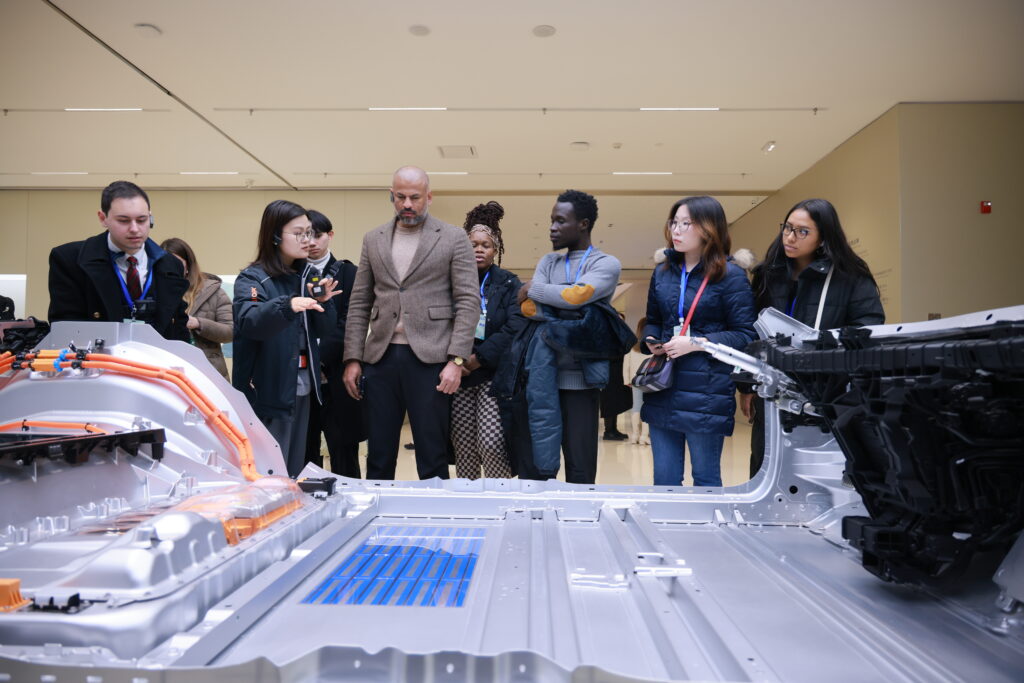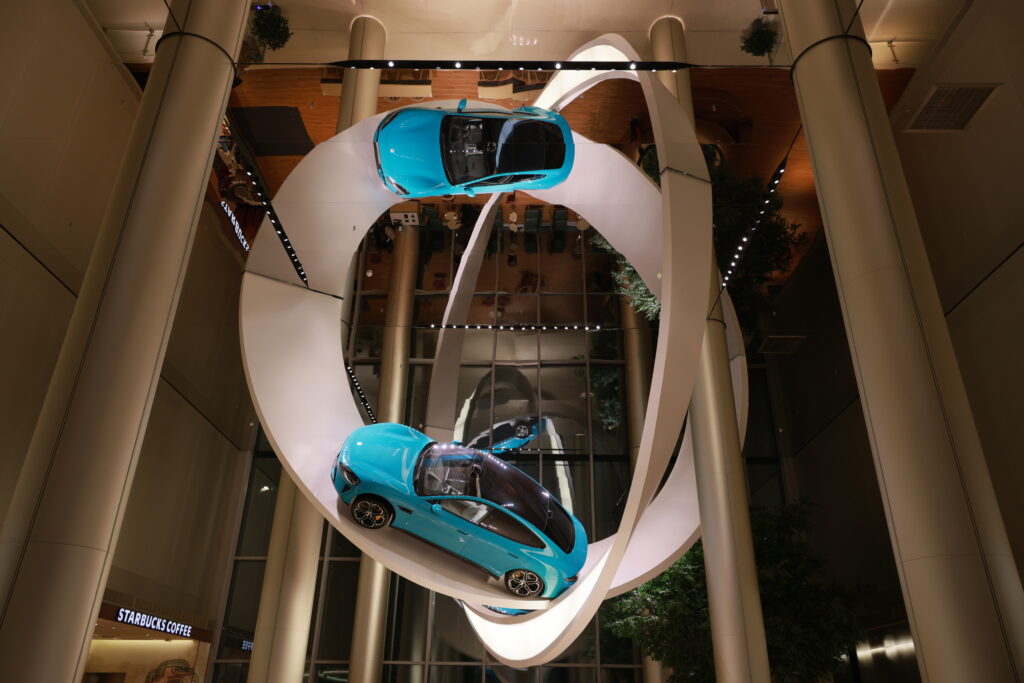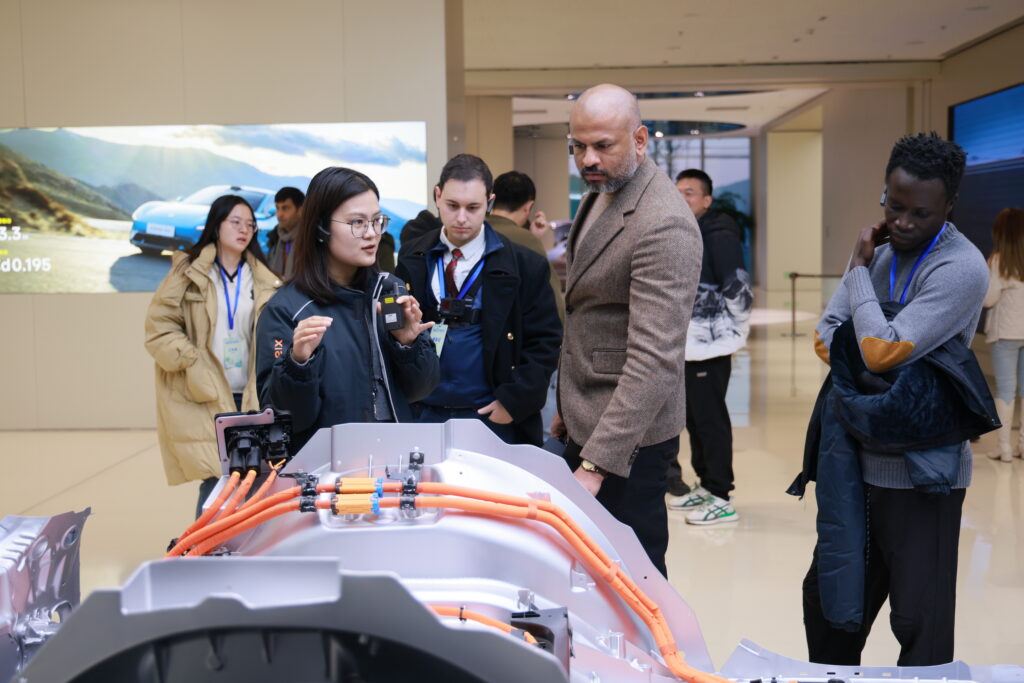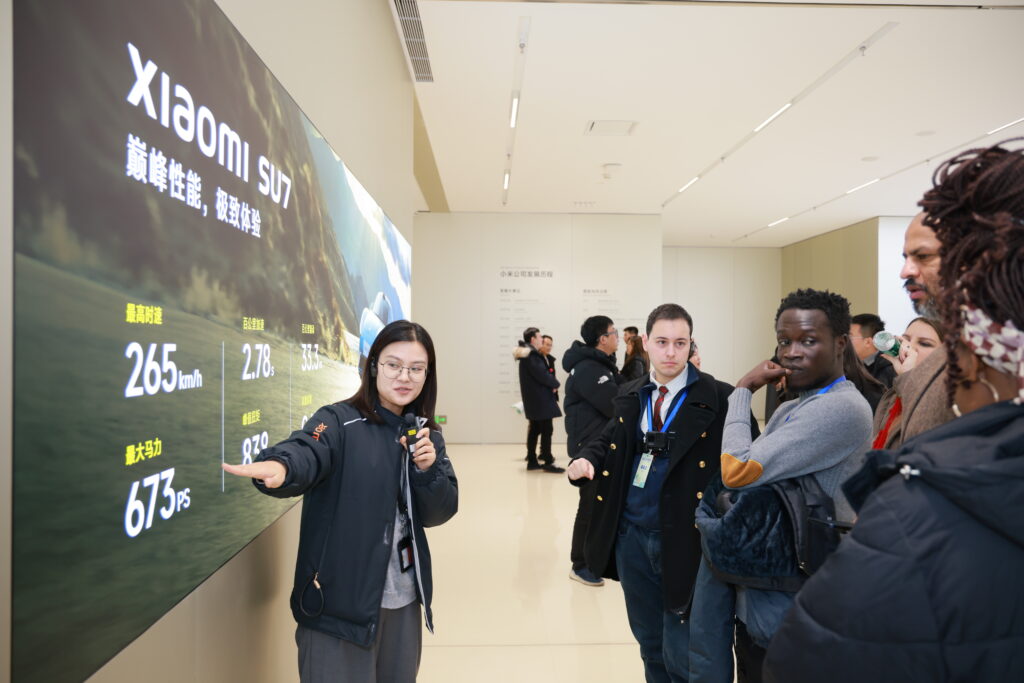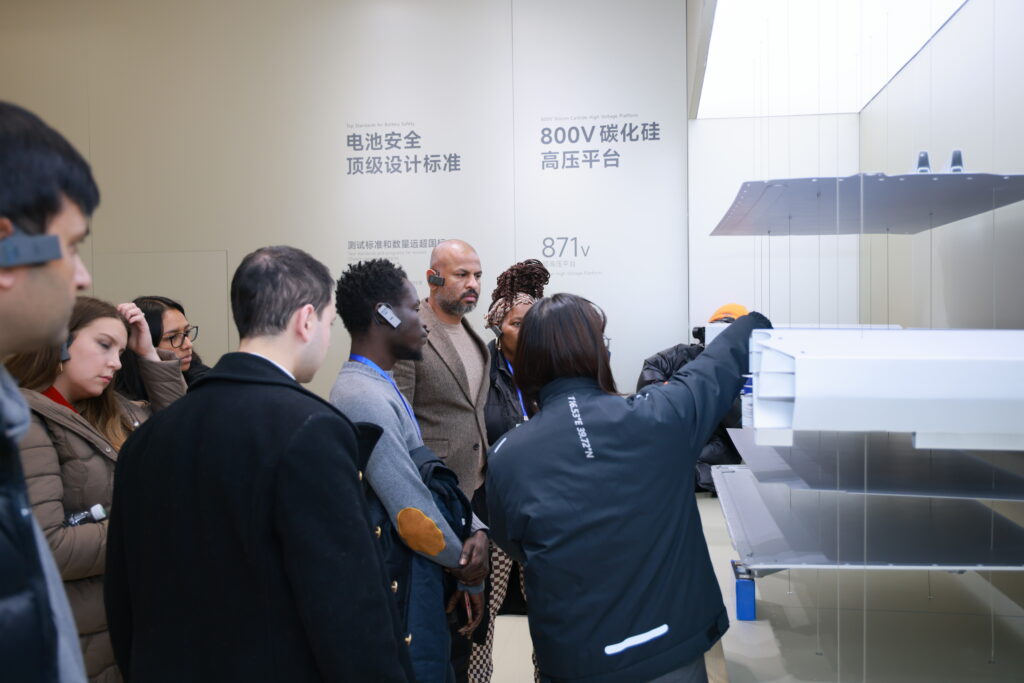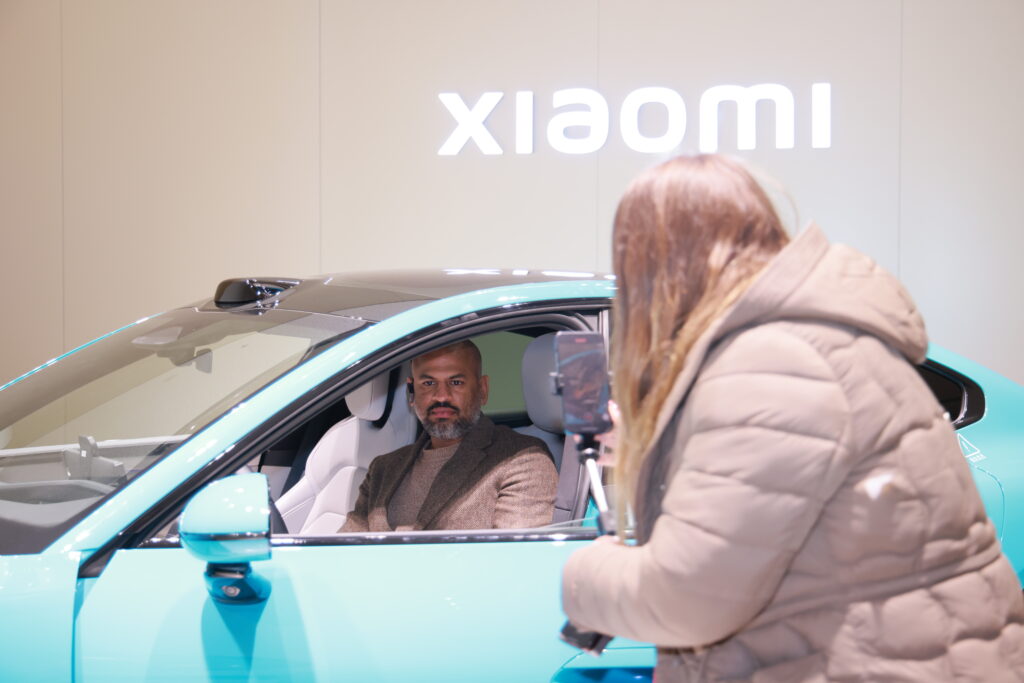BRISL Explores Innovation: A Visit to Xiaomi's EV Automobile Factory in Beijing
In a significant milestone for the Belt & Road Initiative Sri Lanka (BRISL), Yasiru Ranaraja, Director of BRISL, recently visited Xiaomi’s cutting-edge electric vehicle (EV) factory in Beijing. Known globally for its technological innovations, Xiaomi is now making bold strides into the EV industry with three flagship models: the SU7, SU7 Pro, and SU7 Max. This visit not only showcased Xiaomi’s impressive technological advancements but also explored potential collaborations with Sri Lanka’s emerging economic zones under the framework of the Belt and Road Initiative (BRI).
Xiaomi’s Bold Venture into EVs
Globally renowned for its smartphones and smart home devices, Xiaomi’s pivot to electric vehicles highlights its ambition to become a diversified technology leader. Established in 2010, Xiaomi rapidly rose to become one of the world’s largest technology companies, leveraging its strengths in battery technology, automation, and AI-driven innovation. Its expansion into the EV sector is a natural progression, aiming to revolutionize transportation through sustainable and smart solutions.
Cutting-Edge EV Models: SU7, SU7 Pro, and SU7 Max: Xiaomi’s flagship EV lineup—the SU7, SU7 Pro, and SU7 Max—demonstrates the company’s commitment to delivering high-performance, eco-friendly vehicles. Each model is equipped with a revolutionary supercharging system that allows a full charge in just 15 minutes, enabling a range of up to 510 kilometers. The SU7 Max, the pinnacle of Xiaomi’s EV lineup, accelerates from 0 to 265 km/h in a mere 2.78 seconds. These vehicles combine sleek design, advanced engineering, and sustainability, making them a compelling choice for eco-conscious consumers.
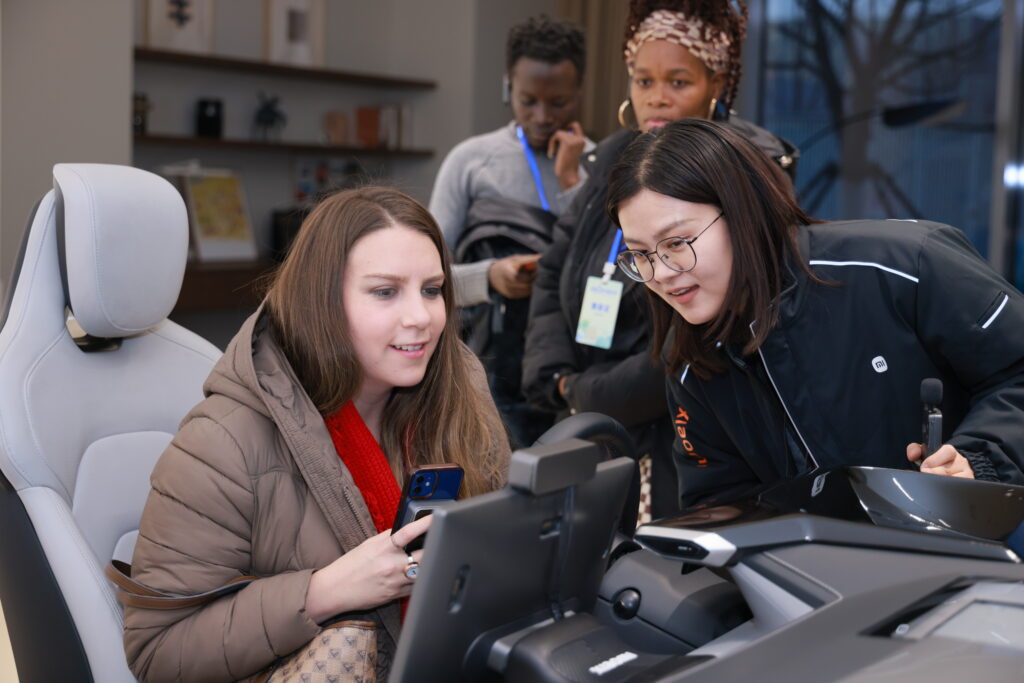
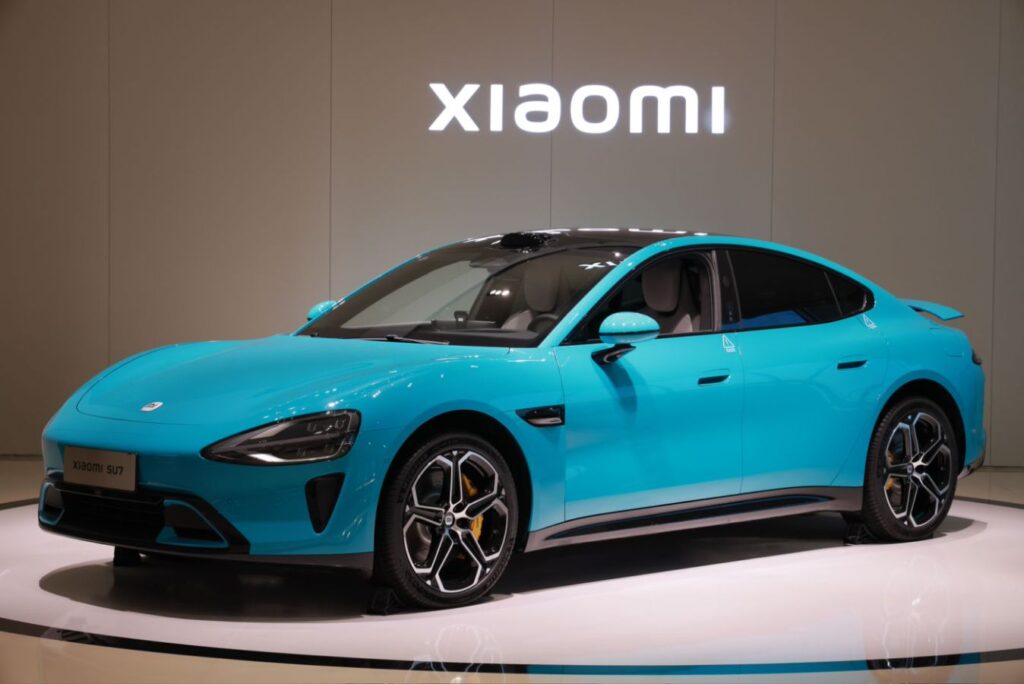
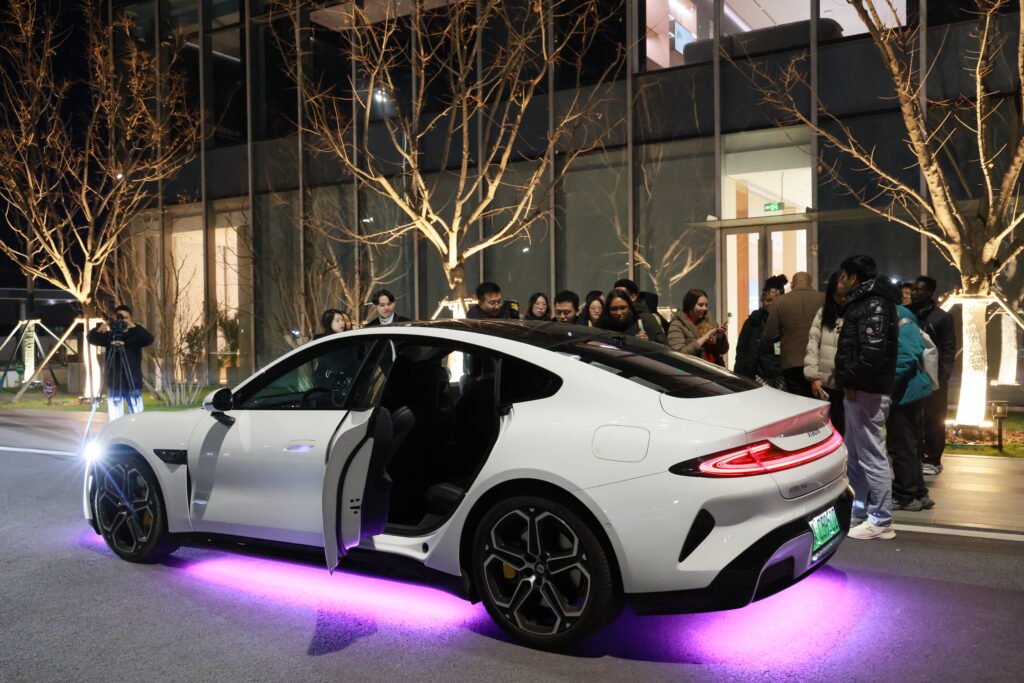
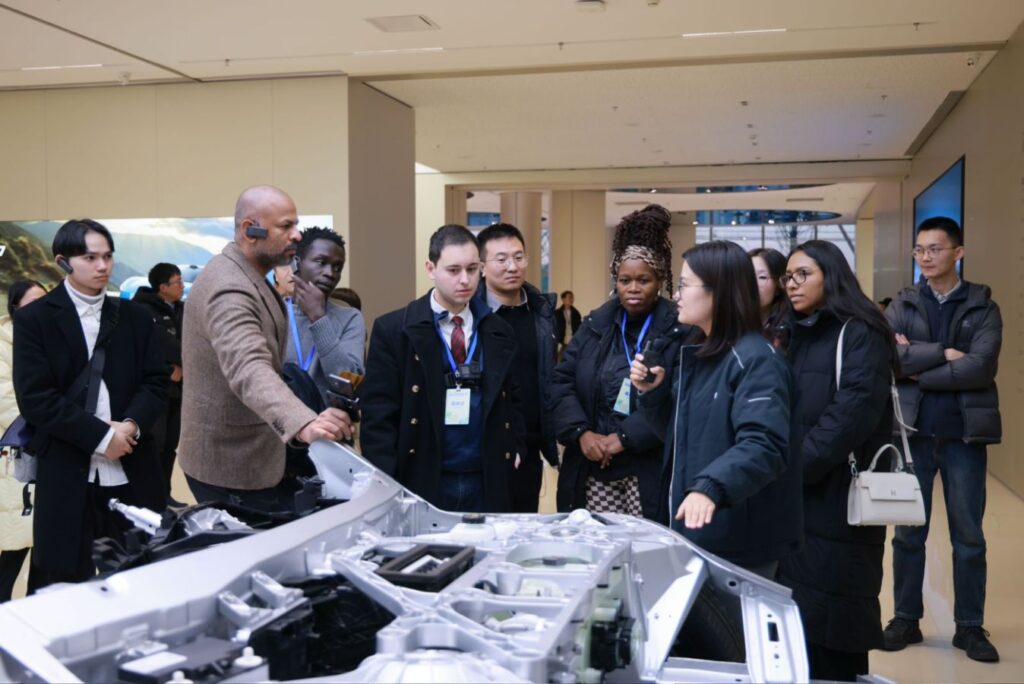
A Factory Larger Than Tiananmen Square
Xiaomi’s EV factory in Beijing is an engineering marvel, covering a space larger than the iconic Tiananmen Square. Fully automated, the factory integrates advanced robotic arms and a 9,100-ton hyper-casting system, emphasizing precision, efficiency, and innovation. This level of automation ensures high production capacity and consistent quality. Yasiru Raraja’s exclusive tour typically off-limits vehicle assembly plant highlighted the scale and sophistication of Xiaomi’s operations, demonstrating how automation and innovation drive Xiaomi’s production success.
A highlight of the visit was the test drive of the SU7 Max, which reach from0 to 265km/h in 2.65 seconds offering a first hand experience of Xiaomi’s technological prowess. The vehicle’s smooth handling lightning-fast acceleration, and advanced features exemplify the fusion of power, innovation, and sustainability. This experience underscored Xiaomi’s commitment to redefining mobility, providing a glimpse into the future of electric transportation where high performance meets environmental responsibility.
During his discussions with Xiaomi’s management, Yasiru Ranaraja underscored the strategic advantages of Sri Lanka’s free trade zones, particularly the Colombo Port City and Hambantota Port Industrial Zone. He highlighted the Colombo Port City as an ideal location for Xiaomi’s regional sales office, given its status as a burgeoning financial hub under the BRI. Moreover, the Hambantota Port Industrial Zone, strategically located along key maritime routes, offers a prime location for an EV assembly plant. Sri Lanka’s advantageous trade policies, combined with its connectivity to regional markets, provide Xiaomi with a unique opportunity to expand its EV footprint in South Asia.
BRI High-Quality Development: Expanding Global Impact
Xiaomi’s EV ambitions align closely with the BRI’s focus on high-quality development, which emphasizes innovation, sustainability, and regional cooperation. The BRI is no longer just about infrastructure; it is evolving into a framework that promotes green development, technological exchange, and industrial upgrading. Yasiru Ranaraja’s discussions with Xiaomi highlight how expanding BRI projects into sectors like EV manufacturing can contribute to regional economic growth and sustainable development.
Sri Lanka, as a key participant in the BRI, is poised to benefit from this shift toward high-quality development. The potential establishment of Xiaomi’s EV assembly plant and regional office in Sri Lanka would not only boost the local economy but also position the country as a hub for green technology in South Asia. Such collaborations reflect the BRI’s broader goals of fostering inclusive growth, enhancing connectivity, and promoting sustainable industrialization.
BRISL’s visit to Xiaomi’s EV factory represents more than just an exploration of cutting-edge technology; it symbolizes the potential for transformative collaboration between China and Sri Lanka under the Belt and Road Initiative. As the BRI evolves to emphasize high-quality development, projects like Xiaomi’s expansion into EV manufacturing offer a blueprint for sustainable growth and regional cooperation.
Through this visit, BRISL has not only deepened its engagement with a global tech leader but also laid the groundwork for future partnerships that align with Sri Lanka’s aspirations for green growth and technological advancement. By integrating innovation with the principles of the BRI, both Sri Lanka and Xiaomi can contribute to a more sustainable and interconnected future, where economic development and environmental stewardship go hand in hand.
